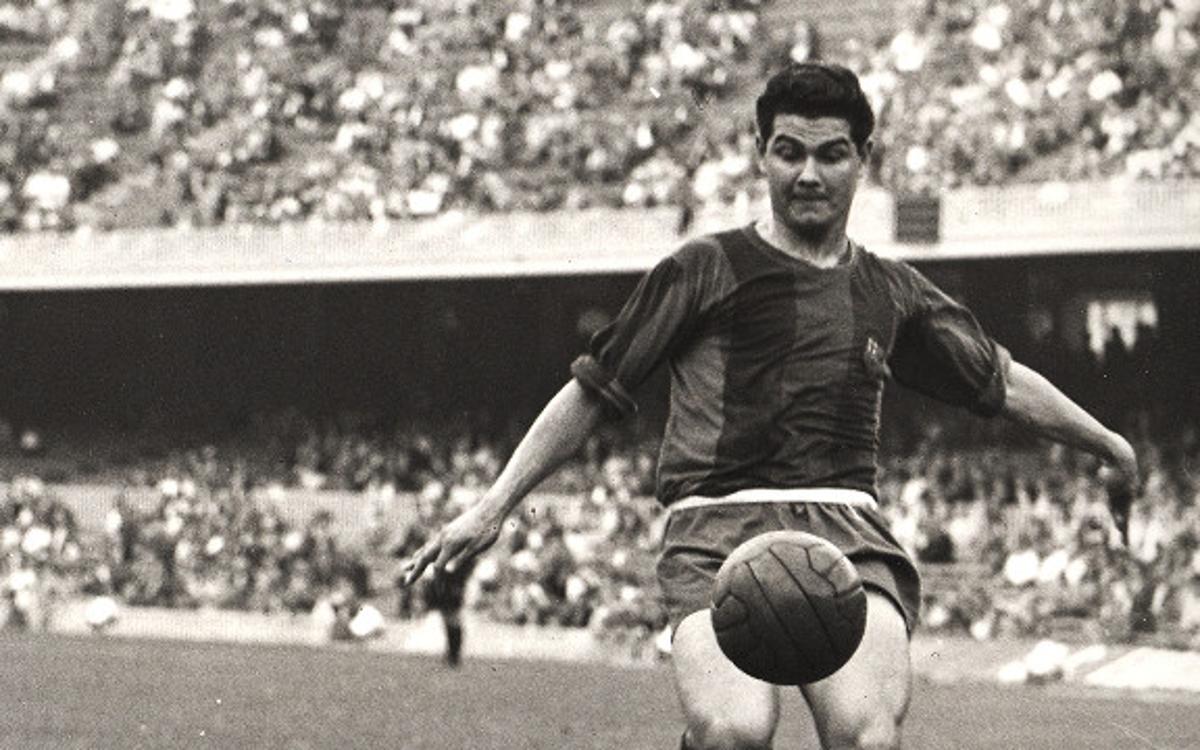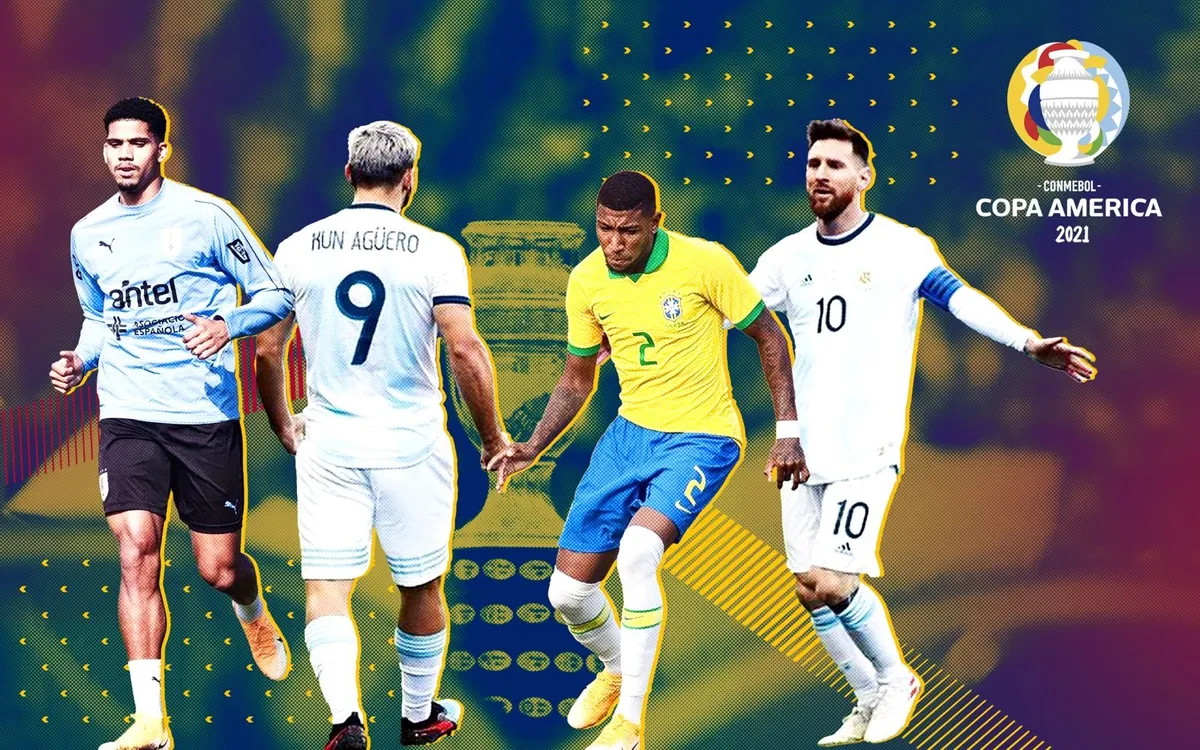FC Barcelona and the history of the Copa América
- Viber
- Messenger
- Copy link
The South American Football Championship, or Copa América as it is called these days, is the oldest surviving international football tournament in the world. This summer, and following a last-minute change of plan, Brazil is hosting the 47th edition of an event that’s had an irregular history over the years, using a wide variety of different formats.
From an FC Barcelona perspective, it’s only really since the late 1990’s that the club has been represented. Before then, the few South Americans that did cross the Atlantic could usually only play for their national teams when they reached the World Cup Finals. The Copa América tended to clash with the European club season, making travel impossible.

The early years
But the championship has always been a valuable way of assessing the talent on offer in Latin America, and several players packed their bags for Barcelona on the back of fine performances. The earliest of these was Hector Scarone, the forward who won the trophy for the fourth time with Uruguay in 1926, and joined the Catalans immediately after. A decade later, in 1935, another Uruguayan, Enrique Fernández, left for Barcelona after leading his country to the title.
Paraguay won the cup for the first time in 1953, and Barça acquired one of the brightest stars of that team, Melanio Olmedo. Paraguay’s 1955 squad featured two more players that caught Barça’s eye: Eulogio Martínez (pictured above) and Hermes González. Two further examples of players that would impress at the tournament and be wearing an FCB shirt just a few months later were Evaristo, runner-up with Brazil in 1957, and Miguel Loayza, who scored 5 goals in 6 games for Peru in 1959.
1975: Sotil distinction
A current Barcelona player appeared in the tournament for the first time in 1975. Not only that, but he won it! When Peru qualified for the final in Caracas, Hugo Sotil was granted special permission to fly out for the game. He got there just in time, racing from the airport and arriving at the stadium as the rest of the team was already warming up.
But it was worth the effort. With Johan Cruyff and Johan Neeskens hogging the two foreigners’ berths at Barça, Sotil had hardly played any competitive football all season, yet he scored the only goal of the game against Colombia, the last time Peru ever won the coveted trophy.
Rivaldo en una acció davant el mític porter muniquès Oliver Kahn en el matx de la jornada 3 de la fase de grups continental 1998/99
1997 and 1999: Barça and Brazil back-to-back
Barcelona would not be directly represented at a Copa America again until the 1997 tournament in Bolivia, when both Giovanni and an inspired Ronaldo appeared for Brazil (the latter shortly before leaving for Inter Milan). Though no longer a Barça player, Romario was also in that marvellous Brazilian side, which won all six games on the way to the title.
Probably the greatest Copa America performance by a current Barça player was that of Rivaldo (pictured above) when Brazil successfully defended the trophy in Paraguay in 1999. He silenced the critics who believed he always under-performed for his country by scoring five goals to finish joint top scorer (along with Ronaldo), and being named tournament MVP.
Goalkeeper Roberto Bonano was set to be Barça’s sole representative at the 2001 Copa America in Colombia, but Argentina pulled out at the last minute due to security concerns. But three of the Brazil team that year, Juliano Belletti, Fabio Rochemback and Geovanni, would be headed for Barça soon after, as would Rafa Márquez, whose Mexican team finished runners-up to the hosts. As a Barça player, he’d be back for the next two editions.
2004 and 2007: Two more for Brazil
Brazil beat Argentina on penalties to win the 2004 final in Lima, and that was despite manager Carlos Alberto Parreira opting to field an experimental squad and leaving Barça megastar Ronaldinho at home. But there was a winner’s medal for 19 year-old Adriano Correia, then of Coritiba, although he didn’t feature in any games.
Another future Barça star, Javier Mascherano, then of River Plate, was part of the losing side, as was Javier Saviola, officially a Barça player but out on loan to Monaco.
Ronaldinho also missed the 2007 Copa America in Venezuela, tiredness being cited as the cause, where Brazil once again beat Argentina in the final. Dani Alves, then of Sevilla, scored the third goal in a 3-0 win. The defeated finalists included Gabriel Milito and a 20-year-old Leo Messi of Barcelona who was voted best young player of the tournament, as well as Mascherano, now into his spell at Liverpool.

2011: Suárez strikes gold
In 2011 Argentina were playing on home soil, by which time Messi, Mascherano and Milito were all team-mates at Barça. The tournament also marked the club's recent signing Sergio Agüero’s Copa America debut. But the hosts crashed out at the quarter final stage to Uruguay, a side that included Martin Cáceres (on loan to Sevilla from FC Barcelona) and a certain Liverpool player called Luis Suárez. Uruguay would go on to win a record 15th title, and Suárez was named MVP.
Adriano, Dani Alves and future Barça star Neymar Jr were in the Brazil squad that suffered an early exit at the hands of Paraguay that year. 2011.

2015: Bravo Chile
In 2015, two teams captained by Barça players met in the final. Claudio Bravo (pictured above) got to lift host nation’s first ever major international trophy as captain of a Chile side that also included past (Alexis Sanchez) and future (Arturo Vidal) Barça stars.
But it meant disappointment for an Argentine side captained by Messi and also featuring his current (Mascherano) and future (Agüero) Barça colleagues.
Luis Suárez, now at Barça, was unable to play any part in the competition due to the FIFA suspension, while Neymar Jr was given a four-match ban after Brazil’s game with Colombia and that ruled him out for the rest of the tournament too. With Dani Alves again featuring, as well as Philippe Coutinho (then of Liverpool), Brazil crashed out on penalties to Paraguay for the second time in a row.
2016: Chile again
A year later, Neymar Jr played no part in the Copa America Centenario after Barça and Brazil reached an agreement that he would only play at the Rio Olympics and not both tournaments. A shock defeat to Peru meant that Alves and future Barça man Coutinho would fail to make it out of their group.
Luis Suárez’s Uruguay also had a disastrous tournament, Mexico and Venezuela advancing at their expense from Group C.
Argentina marched relentlessly towards the final, Leo Messi contributing five goals, where they would once again meet Claudio Bravo’s Chile in the final. And Chile did it again, this time on penalties, with former Barça man Alexis Sánchez being named tournament MVP.
A bitterly upset Messi announced his retirement from international football after the game – a decision that he would later retract.

2019: Coutinho and Arthur on home soil
Brazil hosted the most recent Copa America, and beat surprise package Peru in the final. Captain Dani Alves, named MVP of the tournament, had moved on to PSG by this stage, but Barça had two current players in the team: Coutinho, who had signed from Liverpool, and midfield maestro Arthur.
Peru had eliminated Luis Suárez’s Uruguay and then Chile (with Vidal now a Barça player) to reach the final.
Messi and Agüero’s Argentina did reach the semi-finals, but it was a fairly lacklustre tournament for the albiceleste, and Messi’s only goal was a penalty against Paraguay.
- Viber
- Messenger
- Copy link

